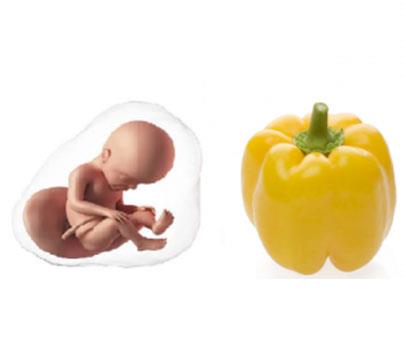
eighteenth week
At this time, your uterus can be felt well below the navel, at the same time as your uterus grows, the balance point in your body changes and this causes your body to become unbalanced. In the 18th week of pregnancy, there is a possibility of dizziness when lying down because the uterus presses on the aorta and other main vessels. Of course, anemia may also make you dizzy. Pregnancy changes the concentration of blood sugar and the rise and fall of blood sugar can lead to feeling confused and weak. In the 18th week of pregnancy, the belly grows rapidly, and tension and pressure cause symptoms. The recommended weight gain in the 18th week of pregnancy is about half to 1 kilo per week for women with an average BMI. If you are concerned about your weight, talk to your doctor. Sudden weight gain or weight loss can be a sign of a problem.
Feeling your baby move is a special part of pregnancy, but it raises many questions – is my baby moving too much or not enough? There is a wide range of what is normal and movements vary from fetus to fetus. Most women feel the first movements between 14 and 26 weeks. What happens if I don't feel the fetal movements at 18 weeks? Don't worry, every fetus is different and if your baby isn't moving this week, it doesn't mean there's a problem. The position of the placenta can affect the amount of movement you feel at this stage – if the placenta is in front, these initial movements will be thwarted and you will have to wait a few more weeks.
Your doctor may refer you to HopeGene Medical Institute for second-trimester screening this week.
To book an ultrasound appointment for the second trimester of pregnancy or anomaly scan (16 to 22 weeks), contact HopeGene Medical Institute.
From now on, the fetus will be more like a human. Prepare yourself to see his face. The closed eyes of the fetus are sensitive to the light falling on your belly. You can see his reaction to the light during the scan. The changes you see in the fetus:
- Fetal face with eyebrows and eyelashes
- The fetal organ is growing and is in harmony with other parts of the fetal body.
- The bones of the fetus are hardened.
- The bones of the inner ear are hardened and the hearing of the fetus is developing.
- The fetus reacts to sounds more than before.
- He can make fists and clap his hands together.
- The connection between nerves and muscles will be established and the movements of the fetus will improve.
- A layer of fat covers the nerves so the nerves can transmit messages from the brain to the body.
- The lungs of the fetus are complete, but oxygen is still transferred to him from the placenta.
- The growth of the fetus is done slowly.
- He can cross his legs, he can bend and shake his arms and legs.
- The fetus kicks every few minutes.
Your fetus is the size of bell pepper and weighs 190 grams and is 14.2 cm tall.
